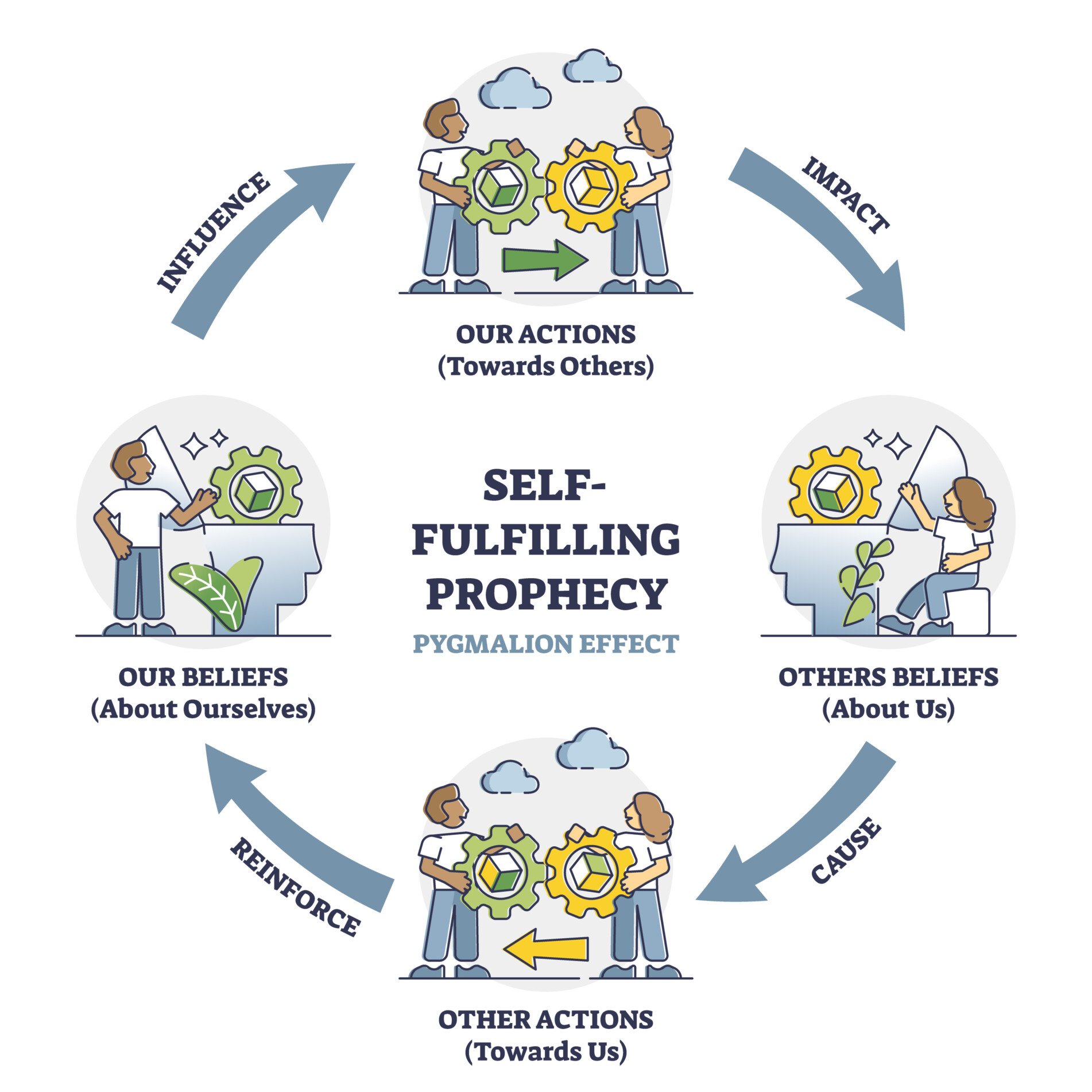In life, we are often influenced by the people around us, both positively and negatively. The “Pygmalion effect” is a psychological phenomenon of this influence, which tells us that when others have positive expectations of you, you are more likely to move in that direction and achieve a breakthrough. So how can you utilize this effect to become a better person?
What is the Pygmalion effect?
The Pygmalion Effect, also known as the Rosenthal Effect, refers to the idea that other people’s expectations can subtly influence our behavior, causing us to become more in line with those expectations. The concept originates from an ancient Greek myth.
According to the legend, there was a king named Pygmalion who had a passion for carving and carved an exquisite statue of a young girl out of ivory. Day after day, he became obsessed with the statue and wished that she could become a real person. Eventually, his sincerity impressed Aphrodite, the goddess of love, and the statue really became a living maiden, and the two lived happily ever after.
This story may seem fictional, but it conveys a psychologically true phenomenon: when you have positive expectations of someone and keep giving positive feedback, they tend to move in that direction and eventually fulfill your expectations of them.

Scientific Experiment: Teacher’s Expectations Can Change Students’ Futures
To test the impact of the Pygmalion effect, psychologists Robert Rosenthal and Lenore Jacobson conducted an experiment in 1968. They randomly selected students in an elementary school and told the teachers that these students were “gifted children,” i.e., leaders with great potential for the future.
In fact, the selection of these students was completely random and had no scientific basis. However, eight months later, the researchers went back to the school and found that the children labeled “gifted” had made significant academic progress, not only in grades, but also in character, interests and social skills.
The results of this experiment shocked the educational and psychological communities. Because it proved an important fact:** Positive expectations from others can shape a person’s growth trajectory**. When teachers believe that a student has potential, they give encouragement and provide more attention more frequently, and children are more likely to grow in confidence and become better in such an environment.
Why does positive feedback change a person?
So what is the logic behind this “miracle”? The truth is that most people don’t know exactly what kind of person they want to be, but are influenced by external cues, especially from authority figures or people they trust.
When teachers are “misled” by psychologists into believing that certain students are gifted, their teaching styles and attitudes will unconsciously change, for example:
Together, these behaviors create a positive environment in which students gradually receive such “positive cues” to boost their confidence and strive for improvement. In the end, they really become better.
How can I use the Pygmalion Effect in my life?
However, not all of us are lucky enough to meet a “valuable person” who is willing to give positive feedback. In reality, many people grow up in a state of denial and suppression, leading to habitual self-doubt that they are not good enough and not worthy of success. So what can be done to break this cycle of negativity?
1. Learn to self-suggest and build self-confidence
If there is no one out there to create a positive environment for you, then become your own Pygmalion.
2. Stay away from negative influences and stay close to positive people
Oprah Winfrey, the famous American host, once said, “Stay away from people who make you feel like you’re not good enough.”
3. Enhance yourself with psychology
Studying psychology will not only help you understand yourself better, but it will also help you cope with various challenges.
Conclusion: You can be your own “Pygmalion ”
The Pygmalion effect tells us that positive expectations and encouragement can dramatically change a person’s trajectory. If you do not meet someone who can encourage you, then become your own “nobleman”, through self-suggestion, choose a positive environment, study psychology, and constantly optimize yourself.
There are no born “geniuses” in the world, only ordinary people who keep improving. When you believe that you can become better and work hard for it, miracles will happen!

